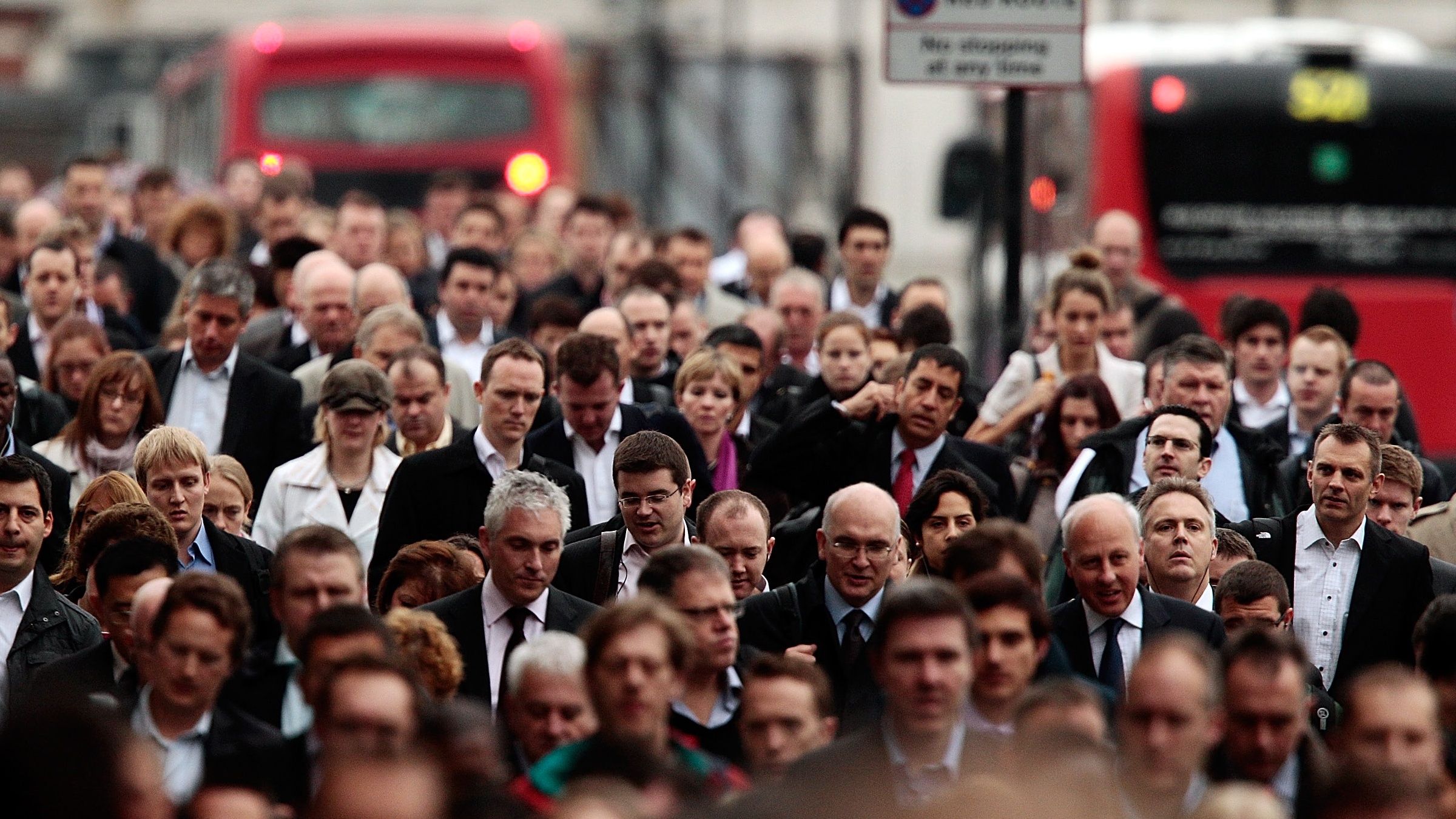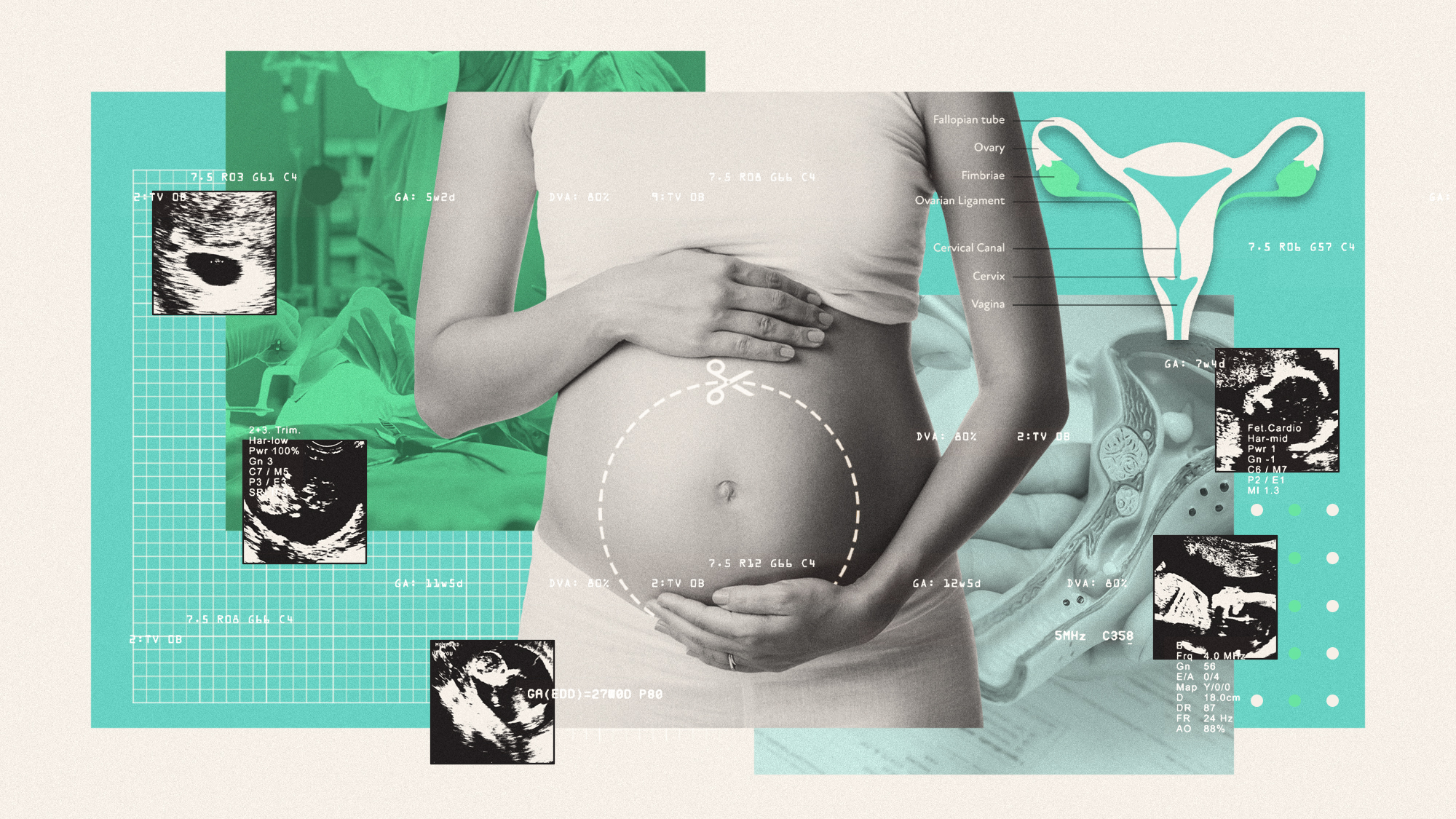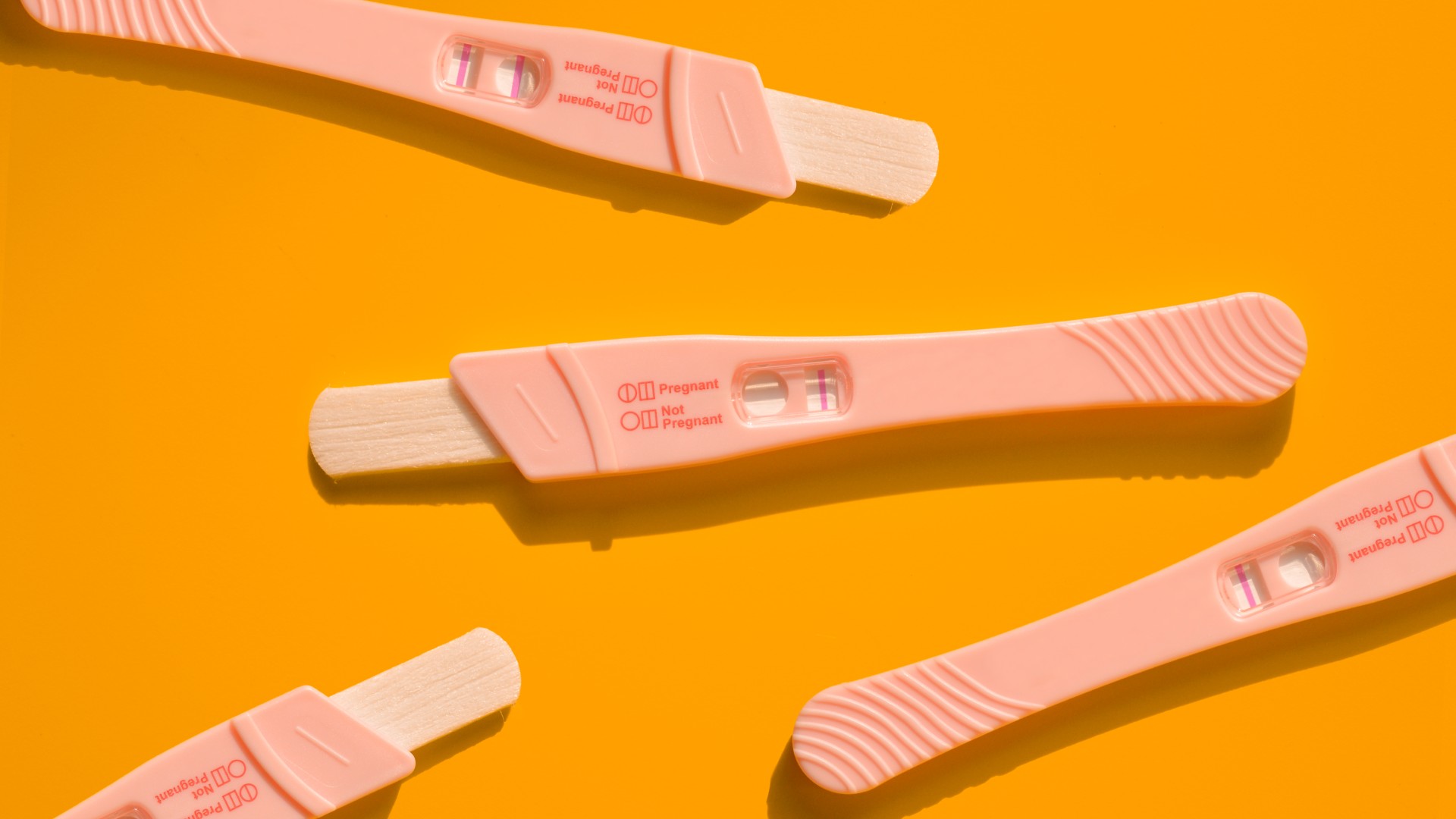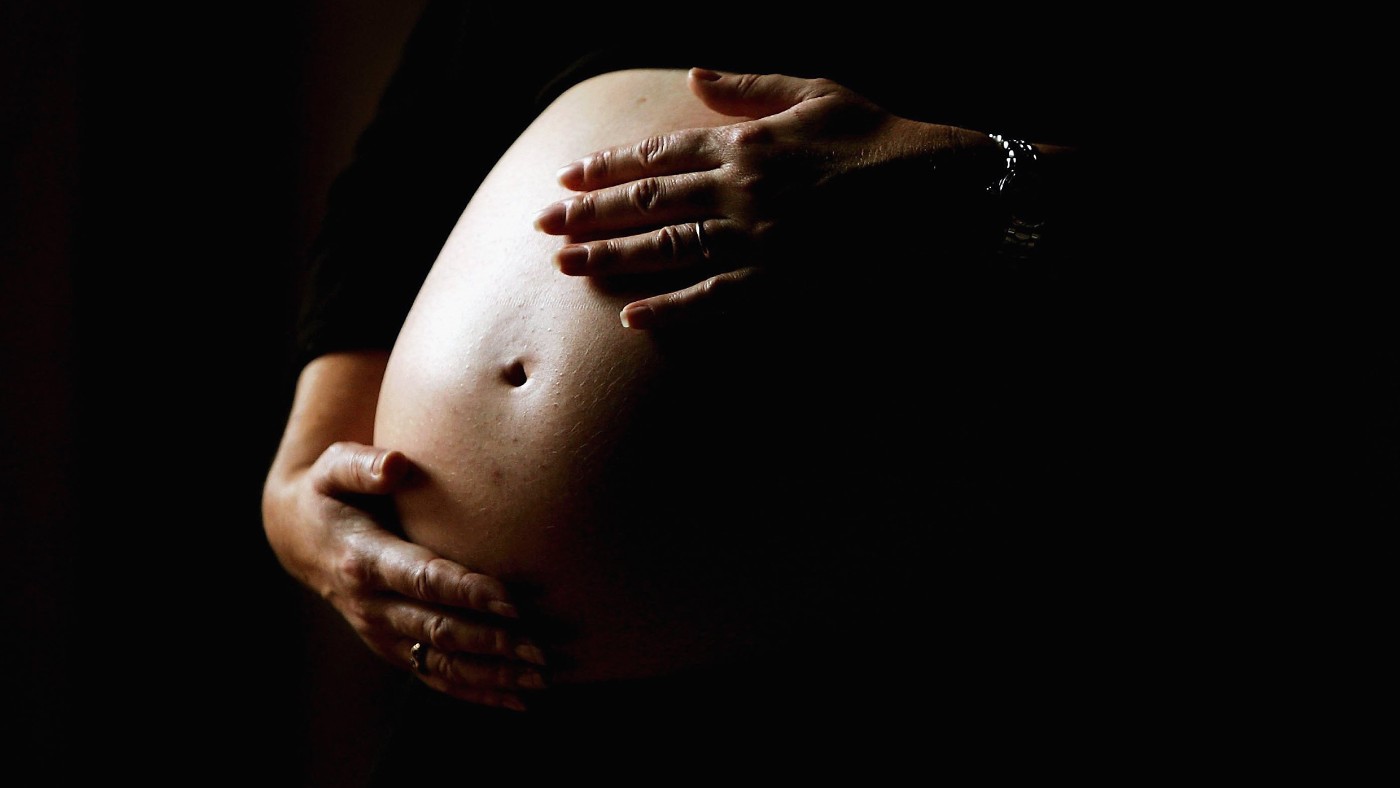Reaction: global population to ‘start shrinking in 44 years’ as fertility rates crash
Ageing societies will ‘create enormous social change’, according to researchers

A free daily email with the biggest news stories of the day – and the best features from TheWeek.com
You are now subscribed
Your newsletter sign-up was successful
Countries worldwide are heading for a steep decline in birth rates that will have a “jaw-dropping” impact on societies, researchers are warning.
Almost every nation across the globe is expected to see their populations shrink by the end of the century as fewer children are born, with 23 countries on track to be home to just half as many people.
The birth rates crash will see the global population peak in 2064 at around 9.7 billion before beginning to shrink, according to scientists “who predict that Nigeria will eventually be home to more people than China”, the Daily Mail reports.
The Week
Escape your echo chamber. Get the facts behind the news, plus analysis from multiple perspectives.

Sign up for The Week's Free Newsletters
From our morning news briefing to a weekly Good News Newsletter, get the best of The Week delivered directly to your inbox.
From our morning news briefing to a weekly Good News Newsletter, get the best of The Week delivered directly to your inbox.
By 2100, the global population is expected to have fallen by 900 million to a total of 8.8 billion.
The researchers, from the University of Washington’s Institute for Health Metrics, say that populations can only grow or remain stable if women have an average of 2.1 children each.
In 1950, women were having an average of 4.7 children in their lifetime, but that fertility rate was down to 2.4 by 2017. And according to the new analysis, outlined in a paper in The Lancet, the global average will be below 1.7 by the end of the century.
Study co-author Christopher Murray, a leading researcher in global health and public health, told the BBC that “most of the world is transitioning into natural population decline”.
A free daily email with the biggest news stories of the day – and the best features from TheWeek.com
“I think it’s incredibly hard to think this through and recognise how big a thing this is. It’s extraordinary, we’ll have to reorganise societies,” he added.
As the London Evening Standard notes, experts say that the falling birth rate is not directly linked to a lack of fertility, but instead reflects “continued trends in female education and improved access to contraception” that are “speeding up the decline in fertility and slowing population growth”.
The new study predicts that the number of under-fives will fall from 681 million in 2017 to 401 million by 2100, while the number of over 80-year-olds will soar from 141 million to 866 million over the same period.
This shift in demographics will “create enormous social change” and bring major new challenges, says Murray.
As the BBC asks, “who pays tax in a massively aged world? Who pays for healthcare for the elderly? Who looks after the elderly? Will people still be able to retire from work?”
Which countries will be most impacted?
The researchers say that many countries already have lower birth rates than are necessary to sustain population sizes, including Russia, Canada and the US, Brazil, China, Australia and most of Europe.
Some countries, including Japan, Spain and Thailand, are expected to see “their communities shrink by a staggering 50% or more” as a result of the rapid decline in birth rates, says the Daily Mail.
Japan’s population is predicted to fall from a peak of 128 million in 2017 to 60 million by the end of the century. Meanwhile, the number of Italy - where birth rates are at their lowest point since 1861, according to The Times - is expected to drop from 61 million to 31 million over that period.
As populations decline at varying rates across the globe, India is expected to overtake China to become the world’s most populated country by 2100, with 1.09 billion people. Nigeria will be in second place, with 791 million, followed by China (732m), the US (336m), Pakistan (248m) and the Democratic Republic of the Congo (246m).
The scientists predict that the population of the UK, which currently stands 66 million, will peak at 75 million in 2063 before dropping to 71.5 million by the turn of the century.
Joe Evans is the world news editor at TheWeek.co.uk. He joined the team in 2019 and held roles including deputy news editor and acting news editor before moving into his current position in early 2021. He is a regular panellist on The Week Unwrapped podcast, discussing politics and foreign affairs.
Before joining The Week, he worked as a freelance journalist covering the UK and Ireland for German newspapers and magazines. A series of features on Brexit and the Irish border got him nominated for the Hostwriter Prize in 2019. Prior to settling down in London, he lived and worked in Cambodia, where he ran communications for a non-governmental organisation and worked as a journalist covering Southeast Asia. He has a master’s degree in journalism from City, University of London, and before that studied English Literature at the University of Manchester.
-
 The environmental cost of GLP-1s
The environmental cost of GLP-1sThe explainer Producing the drugs is a dirty process
-
 Greenland’s capital becomes ground zero for the country’s diplomatic straits
Greenland’s capital becomes ground zero for the country’s diplomatic straitsIN THE SPOTLIGHT A flurry of new consular activity in Nuuk shows how important Greenland has become to Europeans’ anxiety about American imperialism
-
 ‘This is something that happens all too often’
‘This is something that happens all too often’Instant Opinion Opinion, comment and editorials of the day
-
 The UK's first baby born to woman with womb transplant
The UK's first baby born to woman with womb transplantThe Explainer 'Astonishing' medical breakthrough, the culmination of 25 years of research, could pave the way for more procedures to combat uterine infertility
-
 IVM is a better treatment than IVF for some women
IVM is a better treatment than IVF for some womenThe Explainer A less painful, less costly option for treating infertility emerges
-
 The rise of pronatalist tech bros
The rise of pronatalist tech brosIn the Spotlight 'Mix of narcissism, altruism and dreams of immortality' behind drive to reproduce exhibited by likes of Elon Musk
-
 The great baby bust
The great baby bustThe Explainer The fertility rate is falling sharply in the UK and across the world, a trend with major economic and societal consequences
-
 A 'horror story': what is fertility fraud?
A 'horror story': what is fertility fraud?Under The Radar US woman has discovered she slept with her half-brother at high school
-
 What does UK’s first womb transplant mean for future of fertility?
What does UK’s first womb transplant mean for future of fertility?Today's Big Question Procedure could be offered more widely including to transgender people
-
 Pros and cons of surrogacy in the UK
Pros and cons of surrogacy in the UKPros and Cons The government is currently considering substantial reforms to surrogacy law in the UK
-
 Endometriosis: the ‘incurable’ disease affecting one in 10 women
Endometriosis: the ‘incurable’ disease affecting one in 10 womenfeature Advances by Australian researchers offer hope for new treatments and more targeted diagnoses for the debilitating condition